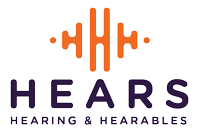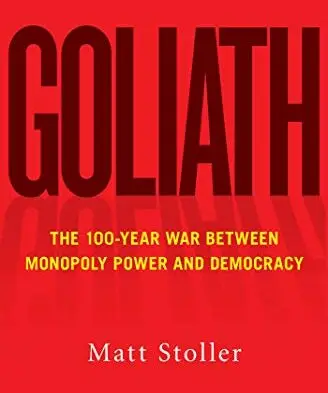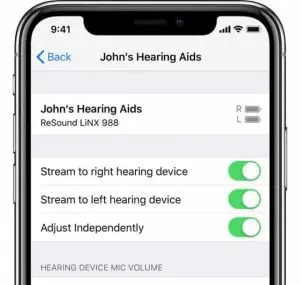Silencing the Competition: Inside the Fight Against the Hearing Aid Cartel
Big, the Newsletter by Matt Stoller October 21
We found this to be an interesting read so what we did is summarize what he wrote so it would be easier for you to get the gist. We don’t think everything he wrote is accurate but we also think it is important for you to understand what we all are up against. We would like you to know that we are not in the “hearing aid cartel” as we have no contracts or hidden business agreements with any big company, and are trying to keep helping people with their hearing without going out of business. We believe in helping people with transparency and compassion.
His first thought is why do Americans pay eight times more for hearing aids than the British? They are big businesses, and the “hearing aid cartel” controls the industry through mergers, patents, and control of many audiologists.
Listen Carefully
For decades, purchasing a hearing aid in the US has been a difficult experience, this is why we started our businesses. It is so hard to figure out what is going on and how to buy the right thing for yourself. There is no cure for hearing loss for the most part so people have to buy a product. Hearing loss is pervasive with about two-thirds of people over 70 experiencing some form of it, but only about 20 percent of those actually use hearing aids. The average cost is $4700 per pair according to Matt’s research. The reason for this excess, Matt believes is the cost is pure profit margin for the manufacturers. We don’t totally agree with that as businesses do need to pay employees and overhead and there is also mark up from the provider. We do know this is partially true because we independent audiologists (that is us) pay between 3-4 times as much as Costco does for the same device. Although this is also not a given because we don’t know what Costco really has negotiated for pricing. We just know that they charge the consumer less than what we private audiologists get for one product, that they sell for two! Note: we understand this as if you buy bulk you can save. Independent Audiologists can not buy that kind of bulk. We are lucky to help the same amount of people in one year that Costco does in one month or even one day for that matter!
So why are hearing aids so expensive?
One reason is that the FDA requires a prescription and of course Medicare doesn’t cover hearing aids. Since 1993, advocates have been calling for the FDA to loosen those regulations. Finally, in 2017, Congress passed a bill titled “Over-the-Counter Hearing Aid Act”, which mandates the FDA to allow hearing aids without a prescription. The goal was to remove a barrier to entry and introduce cheaper competition. This is so the manufacturer can go direct to the consumer without having hearing professionals taking a mark up for their time and efforts. In comes Bose (already closed down their business) and perhaps Apple too.
As many of us are aware, the FDA has now published new rules to create this over-the-counter Hearing Device.
Specifically, the rules allow companies to sell hearing aids without a prescription from an audiologist or hearing aid specialist. The FDA seems to have put protection and limits on noise levels, frequency, distortion, and insertion depth and subjected over-the-counter hearing aids to labeling requirements. You would think this would cause hearing aid manufacturers some concern. Interestingly, the stock prices of the major hearing aid producers did not change. Hmm. Why? There may be several reasons. Perhaps the stockholders are wrong. Another perhaps, is that these firms use a variety of techniques to keep prices high. The OTC market is just the start of the battle. Or are they happy to go direct to the consumer to try and get more market share, we wonder?
How to keep hearing aid prices high: Patents, Conflicts of Interest, and Vertical Integration:
The key players in the market are six firms that you may or may not know: WS Audiology (founded in 2019 when Sivantos/Signia and Widex merged), Amplifon, Sonova (Phonak, Unitron and others), GN, Demant, and Starkey. These firms own many hearing aid brands. Competition is complex but these hearing aid companies use three basic mechanisms to retain their market power. The first is a patent pool: several firms come together to share essential patents with the goal of excluding other from the business. In this industry, the patent pool is centered in a corporation called the “Hearing Instrument Manufacturers Patent Partnership (HIMPP)”. HIMPP, according to its website, develops, manufactures, and markets “over 90% of the hearing technology available to consumers worldwide”. If a new company wants to enter the market, it is likely you will infringe on one of these patents, which means you will have to pay licensing fees. HIMPP also keeps an eye out on hearing aid-related patent activity with the goal of opposing granting patents to non-partners.
The second barrier Matt points out is that most of the manufacturers engage in vertical integration. Vertical integration is when a firm owns an important supplier or buyer up and down the supply chain; a retailer who owns a distributor or a steelmaker who owns a coal mine. Many audiologist’s private clinics get purchased from a manufacture owned subsidiary and or have business loans from the manufacturer. Even worse some of these manufacturers own firms that manage the hearing part of health insurance. We know that Medicare doesn’t cover hearing aids. So here are some of the relationships: WS Audiology owns TruHeaing and Hearing Care Solutions, which runs health care plans and discount plans for Medicare Advantage Insurers (including Humana, BC/BS, Anthem, Aetna, Cigna and others). So, the hearing aid section of your insurance policy is owned by the hearing aids manufacturer. What could possibly go wrong?
These manufacturers take it a step further by owning or affiliating with networks of audiologists. So people will use their insurance, which is controlled by a hearing aid manufacturer, send them to an audiologist who is also employed by that hearing aid manufacturer. Patients have no idea these conflicts of interest exist.
The Politics of Monopoly Maintenance:
Much of the power of the cartel is lobbying and campaign contributions. These firms also rely on mergers. Since the bill passed in 2017, Sonova bought the consumer part of Sennheiser’s business (a German private audio company), Bragi sold its hardware business in Bluetooth earpieces, and HIMPP acquired patents from several companies who might otherwise have entered the new OTC hearing aid market.
Stay tuned. You know that we at Hears to U and Hears Hearing & Hearables have mentioned these conflicts we know about to our patients. We have tried to explain what a third-party payer really is. How a discounted hearing product may or may not be the right thing for you. This is our business and a knowledgeable consumer can be a positive thing. We will continue to keep you up to date. Anti-monopolists in Congress have taken notice. Creating the OTC hearing aid market is just the beginning. As they begin to unravel the Gordian Knot that is these conflicts of interest, more will follow. We are hopeful.
Summarized by Karen and edited by Kim





